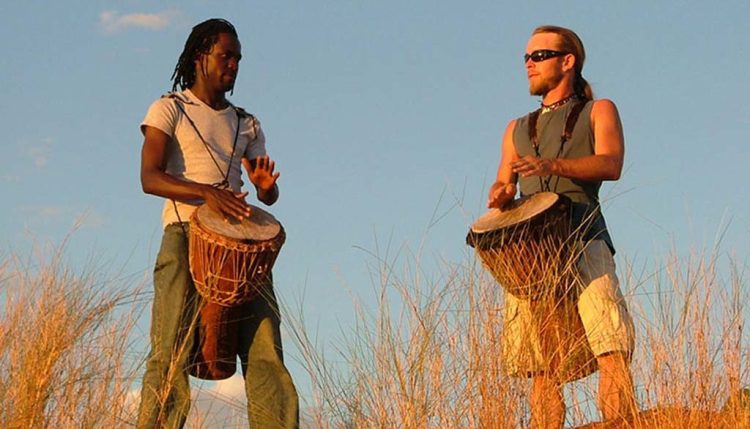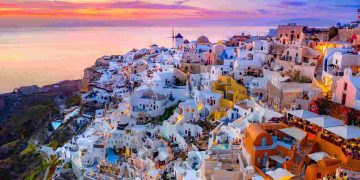Music is an integral part of human culture, transcending borders, languages, and time. From the soulful rhythms of African drumming to the delicate strings of a Chinese guzheng, music is not only a form of artistic expression but also a vital component in many cultural ceremonies. It plays an essential role in rituals, festivals, and gatherings across the globe, acting as a bridge that connects the spiritual, emotional, and social dimensions of life.
In many cultures, music forms the heart of religious and social ceremonies. It is used to mark significant life events such as births, marriages, and deaths, and is also crucial during seasonal festivals and community gatherings. The power of music to evoke emotions and convey meaning makes it an ideal medium for expressing cultural values and beliefs, as well as strengthening social bonds.
From the rhythmic beats of traditional drum circles in Africa to the spiritual chants of Tibetan monks, music serves as a powerful medium of communication that encapsulates the essence of cultural identity. Its role in ceremonies often reflects the history, spirituality, and philosophy of a particular group, and it remains a vital thread in the fabric of cultural continuity.
In this article, we explore how music defines cultural ceremonies around the world and delve into the unique ways in which it shapes identity, community, and heritage.
1. The Role of Music in African Tribal Ceremonies
African tribal ceremonies are deeply intertwined with music, where rhythm and dance form the core of these cultural rites. Drumming, in particular, is one of the most prominent musical elements, serving as both a ritualistic and communicative tool. The djembe, a goblet-shaped drum, and the talking drum are used to transmit messages, guide rituals, and accompany dances during important events, such as weddings, initiations, and harvest festivals.
The rhythm and melodies produced by these instruments evoke emotional responses, energizing participants and invoking spiritual connections with ancestors and nature. Music, along with chanting and singing, creates a sense of unity and belonging, often marking the transition of individuals from one stage of life to another, such as from adolescence to adulthood.
2. Indian Classical Music in Hindu Ceremonies
In Hinduism, music has been an essential part of rituals for thousands of years. The deep, resonant tones of the sitar and tabla fill the air during ceremonies at temples and during private prayers. Music is used to honor deities and to create an atmosphere conducive to spiritual reflection. The practice of bhajans (devotional songs) and kirtans (call-and-response chants) is prevalent in Hindu communities, especially during festivals like Diwali and Navaratri.
In addition to its devotional significance, Indian classical music is also performed during life events such as weddings and birth ceremonies. The specific ragas (melodic frameworks) used in these ceremonies are believed to influence the spiritual and emotional state of participants, aligning them with cosmic energies.
3. The Significance of Music in Native American Ceremonies
Music is integral to Native American ceremonies, where it is often used to honor the spirit world and invoke the forces of nature. The use of drums, rattles, and flutes plays a central role in rituals and dances, such as those performed during the Powwow—a gathering that celebrates Native American culture through music, dance, and song.
The drum, in particular, is seen as a sacred instrument that connects the physical world with the spiritual realm. The repetitive rhythms symbolize the heartbeat of the earth, and its sound is believed to create a sacred space for the spirits to communicate with the living. Music in these ceremonies is used not only to celebrate life but also to pay respects to ancestors and ask for guidance and protection.
4. Gregorian Chanting in Christian Ceremonies
Christianity has a long history of integrating music into its religious ceremonies. One of the most well-known examples is Gregorian chant, a form of plainchant used in Roman Catholic Masses, especially during key liturgical ceremonies like Easter and Christmas. The haunting, a cappella melodies of Gregorian chants are designed to create a sense of solemnity and reverence during religious observances.
In addition to Gregorian chant, hymns and psalms are sung during church services and other religious rituals. These musical forms help foster a sense of community among worshippers, as they sing together in praise of God and reflect on religious teachings. Music serves to elevate the experience of worship, transforming it into a shared spiritual journey.
5. The Role of Music in Japanese Tea Ceremonies
In Japan, the tea ceremony, known as chanoyu, is a ritualized form of preparing and drinking tea that emphasizes aesthetics, manners, and mindfulness. While music is not traditionally a dominant feature of the tea ceremony itself, certain aspects of Japanese culture incorporate music into the broader context of these ceremonies. For instance, koto music, the sound of the traditional Japanese stringed instrument, is sometimes played in the background during the tea ceremony, creating a serene and contemplative atmosphere.
The delicate and meditative nature of Japanese music enhances the quiet ritual of the tea ceremony, emphasizing simplicity, elegance, and tranquility. Music in this setting underscores the spiritual dimension of the practice, inviting participants to reflect on the present moment and their connection to nature and the universe.

Travel Story: Immersing Yourself in Local Music Festivals
For travelers seeking to understand the heart and soul of a destination, attending a local music festival is one of the best ways to immerse yourself in the culture. Whether it’s dancing to reggae beats in Jamaica, listening to classical opera in Vienna, or tapping your feet to flamenco rhythms in Spain, music festivals provide a unique opportunity to engage with the local traditions and customs of a region.
1. The Global Appeal of Music Festivals
Music festivals around the world offer a wide range of genres and styles, allowing visitors to experience the diversity of global soundscapes. From the Glastonbury Festival in the United Kingdom to the Montreux Jazz Festival in Switzerland, these events bring together people from all walks of life to celebrate the universal language of music. For travelers, they represent an opportunity to not only enjoy great performances but also connect with fellow music lovers, forging friendships that transcend borders.
In addition to showcasing musical talent, many music festivals are deeply rooted in the history and traditions of their locations. They often serve as a way to preserve and share local music styles and genres with the world. Whether it’s Tango in Argentina, Mariachi in Mexico, or Fado in Portugal, attending a music festival gives travelers an authentic and immersive experience of a region’s cultural heritage.
2. Personal Experience: Immersing in Bali’s Traditional Gamelan Music
One unforgettable experience of immersing yourself in local music occurred during my visit to Bali, Indonesia. I had the privilege of attending a Gamelan performance, a traditional Balinese ensemble that plays a mesmerizing mix of percussion, bamboo instruments, and metal gamelan. The sounds of the ensemble resonate deeply within the body, evoking an emotional response that connects you to the island’s spiritual essence.
During the performance, dancers in vibrant costumes swayed gracefully in harmony with the music, while the intricate rhythms and melodies reverberated through the open-air theater. This experience allowed me to connect not only with the local culture but also with the universal power of music to unite people through rhythm and emotion.
Scenic Spots: Best Scenic Locations for Musical Celebrations
The combination of breathtaking landscapes and musical performances creates an unforgettable experience for travelers. Some of the world’s most iconic scenic locations host musical celebrations, providing a stunning backdrop for the fusion of nature and art.
1. The Salzburg Festival, Austria
Set in the picturesque city of Salzburg, Austria, the Salzburg Festival is one of the world’s premier classical music festivals. Held every summer, this festival celebrates the works of famous composers such as Mozart, whose birthplace is in Salzburg. The performances take place in historical venues such as the Salzburg Cathedral and the Haus für Mozart, offering a world-class musical experience surrounded by the beauty of the Alps.
2. The Blue Lagoon, Iceland – A Unique Music and Spa Experience
Imagine enjoying world-class music while soaking in the rejuvenating geothermal waters of Iceland’s Blue Lagoon. Iceland is known for its dramatic landscapes, and the Blue Lagoon provides a surreal setting for music lovers. Concerts and musical events are often held at the lagoon’s geothermal spa, where you can listen to electronic music while immersing yourself in the healing waters surrounded by stark volcanic landscapes.
3. The New Orleans Jazz & Heritage Festival, USA
The New Orleans Jazz & Heritage Festival is one of the most celebrated music festivals in the world, set in the heart of the vibrant French Quarter. The festival draws musicians from across the globe to perform jazz, blues, and other genres in outdoor venues and historical spaces. Set against the stunning architecture of the city and the flowing Mississippi River, this festival brings together music, culture, and history in an unforgettable celebration.
4. The Vienna Philharmonic Orchestra in Schönbrunn Palace Gardens, Austria
For lovers of classical music, a performance by the Vienna Philharmonic Orchestra in the gardens of Schönbrunn Palace is a once-in-a-lifetime experience. This beautiful location, with its grand palace and manicured gardens, provides a serene backdrop for a night of world-class orchestral music. The Vienna Philharmonic’s performances are a cultural highlight, attracting music lovers from all over the world.
Conclusion
Music is far more than just entertainment; it is an essential component of cultural ceremonies and celebrations across the world. Whether in the rhythmic drumming of an African tribe, the intricate melodies of Indian classical music, or the haunting chants of Tibetan monks, music serves as a unifying force, connecting individuals to their cultural heritage and the spiritual realm. As music plays such an integral role in ceremonies, it offers travelers an authentic and immersive way to connect with a destination’s unique traditions and customs.
Attending music festivals and witnessing the fusion of music with stunning landscapes allows travelers to dive deeper into the cultural fabric of a region. From the sun-drenched beaches of Bali to the grand halls of Vienna, music provides a sense of place, an emotional connection, and a celebration of life’s beautiful diversity.





















